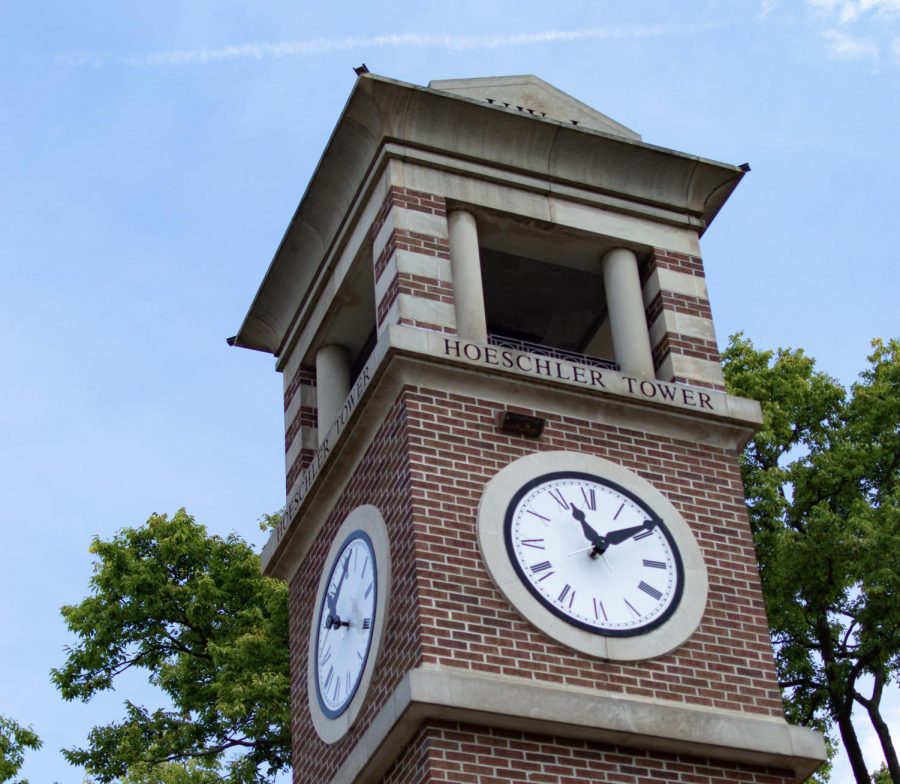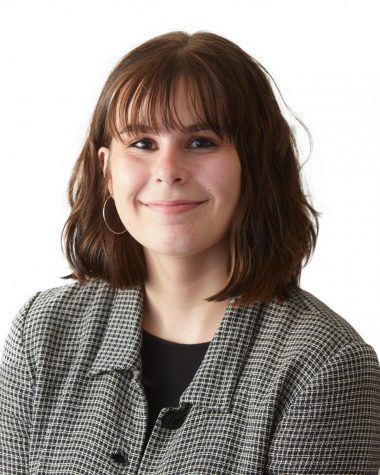UWL sexual misconduct investigation has ended, now Chancellor Gow decides
November 22, 2019
Chancellor Jow Gow met with the UW system legal counsel on Friday, Nov. 22 to discuss the recent investigation into a sexual misconduct allegation against former chair of the art department, Joel Elgin. In a phone interview with The La Crosse Tribune, Gow declined to comment on whether investigators found Elgin guilty of violating university policy and that he would first be meeting with lawyers to discuss this.
The Racquet Press reached out to Gow Thursday, Nov. 21 over email about the comment in the La Crosse Tribune and he responded:
“I have received and read the investigators’ report and will meet with UW System legal counsel on Friday to determine how to proceed and what can be shared with the public. Had you contacted me on behalf of the Racquet Press, I would have provided you with the same information. After my meeting on Friday, I will be issuing a public statement with as much information as I am legally allowed to share. As you may know, in a process involving faculty misconduct I am required to follow the procedures stipulated in Wisconsin Legislature: UWS Chapter 4.”
According to an article in the Racquet Press, Elgin was put on the tenure track in 1997. Before he came to the University of Wisconsin-La Crosse, he was teaching part-time at Luther College. Elgin received his master’s in arts and a master’s in fine arts from the University of Iowa. His prior teaching history includes the University of Maine, Dartmouth College, Yale University, Swarthmore College, and Amherst College.
Due to Wisconsin state statute Chapter UWS 4, procedures for dismissal, a final decision for Elgin, could be months away. UWS 4.015 states there must be “clear and convincing evidence,” meaning that the information provided “would persuade a reasonable person to have a firm belief that a proposition is more likely true than not true. It is a higher standard of proof than ‘preponderance of the evidence.'”
UWS 4.02 focuses on the responsibility of charges. It reads:
“Whenever the chancellor of an institution within the University of Wisconsin system receives a complaint against a faculty member which he or she deems substantial and which, if true, might lead to dismissal under s. UWS 4.01, the chancellor, or designee, shall within a reasonable time initiate an investigation and shall, prior to reaching a decision on filing charges, offer to discuss the matter informally with the faculty member. For complaints of sexual harassment, sexual assault, dating violence, domestic violence, or stalking, the chancellor, or designee, shall appoint the Title IX Coordinator, or designee, to initiate an investigation in accordance with applicable policies. The chancellor, or designee, shall also offer to discuss the matter informally with the complainant, and provide information regarding rights under this chapter. Both the faculty member and the complainant shall have the right to be accompanied by an advisor of their choice at any meeting or proceeding that is part of the institutional disciplinary process. A faculty member may be dismissed only after receipt of a written statement of specific charges from the chancellor as the chief administrative officer of the institution and, if a hearing is requested by the faculty member, in accordance with the provisions of this chapter. If the faculty member does not request a hearing, action shall proceed along normal administrative lines but the provisions of ss. UWS 4.02, 4.09, and 4.10 shall still apply.”
Following UWS 4.02 responsibility for charges is UWS 4.03, standing faculty committee, UWS 4.04, the hearing, UWS 4.05, adequate due process, UWS 4.06, procedural guarantees, UWS 4.07, recommendations to the chancellor to the regents, UWS 4.08 board review and UWS 4.09, suspension from duties.
UWS 4.09 states: “Pending the final decision as to his/her dismissal, the faculty member shall not normally be relieved of duties; but if, after consultation with appropriate faculty committees the chancellor finds that substantial harm to the institution may result if the faculty member is continued in his/her position, the faculty member may be relieved immediately of his/her duties, but his/her pay shall continue until the board makes its decision as to dismissal, unless the chancellor also makes the determinations set forth in s. UWS 7.06 (1) in which case the suspension from duties may be without pay and the procedures set forth in s. UWS 7.06 shall apply.”
Lastly, if the suspension is reached, is UWS 4.10, date of dismissal.
According to the University of Wisconsin-La Crosse’s Title IX Process, if an employee is guilty of violating sexual misconduct policies, “the finding is a part of their permanent employee record and is made available upon request to any employer who contacts the university for a reference regarding that individual. This policy helps to ensure that individuals are not able to escape accountability by going to another institution.”
On Friday, Nov. 22 at 1:58 p.m. Gow sent out an email to the UWL public:
“One of the most important responsibilities I have in my chancellor role is making judgments in situations involving serious potential faculty violations of university policies. My activities in these situations are so critical that they are stipulated by Wisconsin state law—specifically, UWS Chapter 4.” He then restated UWS 4.02 that is provided above.
“Please understand that when a UWS Chapter 4 process is underway, to protect the integrity of the process and respect the rights of all involved I will not be commenting on it. I am very grateful for your patience and understanding,” wrote Gow.
The Racquet Press will be updating the UWL community as this story progresses.







